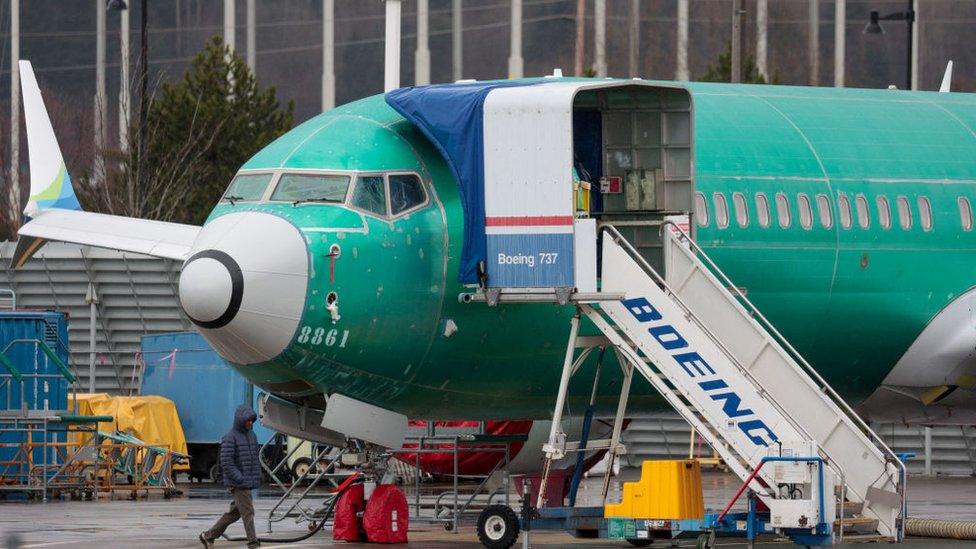John Barnett: Boeing whistleblower 'hoped to change its culture', family says
- Published
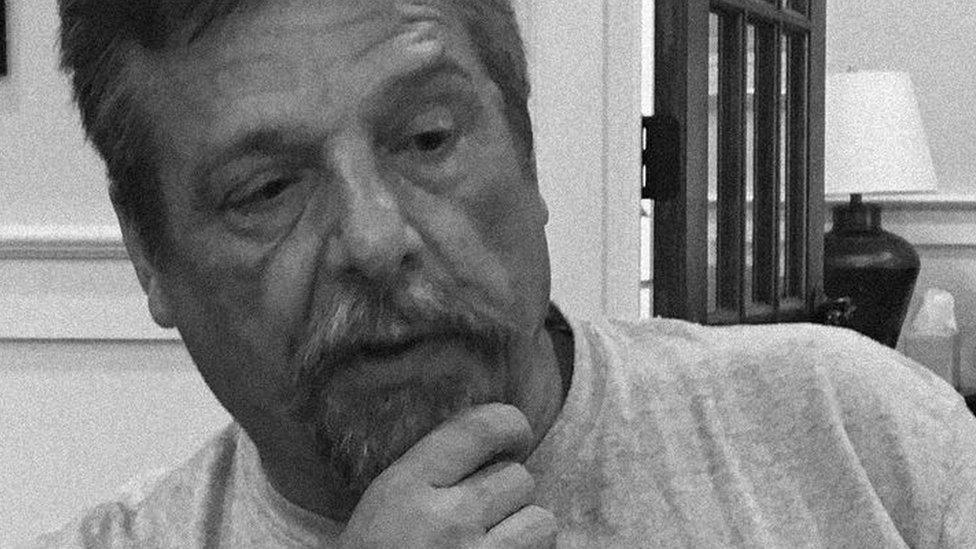
John Barnett was a former quality control manager at Boeing
Lawyers for the Boeing employee-turned-whistleblower found dead by apparent suicide have hailed him as "a brave, honest man of the highest integrity".
Authorities are currently investigating the death of John Barnett, from what appeared to be a self-inflicted wound.
Mr Barnett retired after working more than 30 years at Boeing in 2017. He was giving evidence in a lawsuit against the company before his death.
Two of his attorneys called on police to fully investigate how he had died.
"John was in the midst of a deposition in his whistleblower retaliation case, which finally was nearing the end," Robert Turkewitz and Brian Knowles said in a statement to the BBC.
"He was in very good spirits and really looking forward to putting this phase of his life behind him and moving on. We didn't see any indication he would take his own life. No one can believe it."
Calling on officials in Charleston, South Carolina to provide more information about what happened, they wrote: "No detail can be left unturned."
Mr Turkewitz and Mr Knowles added that Mr Barnett was somebody who "cared dearly" about his family, his friends and Boeing, from its pilots to its customers.
From 2010 until his retirement on health grounds, Mr Barnett worked as a quality manager at the North Charleston plant making the 787 Dreamliner, a state-of-the-art airliner used mainly on long-haul routes.
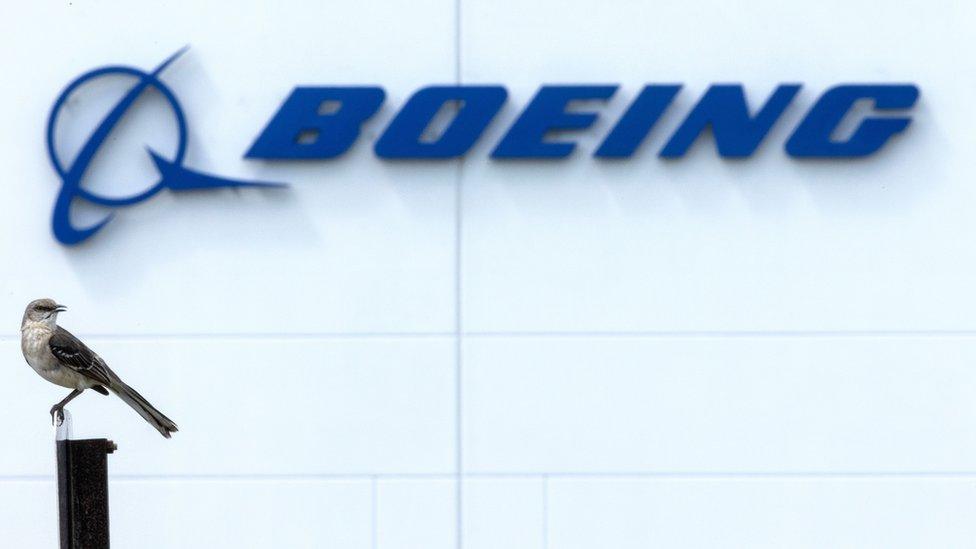
In that job, he "learned of and exposed very serious safety problems with the Boeing 787 Dreamliner and was retaliated against and subjected to a hostile work environment", his lawyers said.
After retiring, he embarked on a long-running legal action against the company.
He accused it of denigrating his character and hampering his career because of the issues he pointed out - charges rejected by Boeing.
At the time of his death, Mr Barnett had been in Charleston for legal interviews linked to that case and he gave a formal deposition last week in which he was questioned by Boeing's lawyers, before being cross-examined by his own counsel.
He had been due to undergo further questioning on Saturday. When he did not appear, enquiries were made at his hotel.
He was subsequently found dead in his truck in the hotel car park.
Taking on his long-time employer had caused Mr Barnett to develop post-traumatic stress disorder (PTSD) and his health had been in decline, his brother told US media.
"He was suffering from PTSD and anxiety attacks as a result of being subjected to the hostile work environment at Boeing, which we believe led to his death," Rodney Barnett said.
Mr Barnett added that his brother "was looking forward to having his day in court and hoped that it would force Boeing to change its culture".
The quality manager was known for raising concerns about the US plane giant's production standards, telling the BBC in 2019 that under-pressure workers had been deliberately fitting sub-standard parts to aircraft on the production line. He later told the BBC that workers had failed to follow procedures intended to track components through the factory, allowing defective components to go missing.
He also said he had uncovered serious problems with oxygen systems, which could mean one in four breathing masks would not work in an emergency.
He said soon after starting work in South Carolina he had become concerned that the push to get new aircraft built meant the assembly process was rushed and safety was compromised, something the company denied.
Mr Barnett said he had alerted managers to his concerns, but no action had been taken.
Boeing denied his assertions. However, a 2017 review by the US regulator, the Federal Aviation Administration (FAA), did uphold some of Mr Barnett's concerns.
It established that the location of at least 53 "non-conforming" parts in the factory was unknown, and that they were considered lost.
On the oxygen cylinders issue, the company said that in 2017 it had "identified some oxygen bottles received from the supplier that were not deploying properly". But it denied that any of them were actually fitted on aircraft.
Mr Barnett's death comes at a time when production standards at both Boeing and its key supplier Spirit Aerosystems are under intense scrutiny.
Last week, the FAA said a six-week audit of the company had found "multiple instances where the company allegedly failed to comply with manufacturing quality control requirements".
If you have been affected by any of the issues raised in this story you can visit BBC Action Line.
From Canada or US: If you're in an emergency, please call 911
You can contact the US National Suicide Prevention Lifeline on 1-800-273-8255 or the Crisis Test Line by texting HOME to 741741
Related topics
- Published11 January 2024
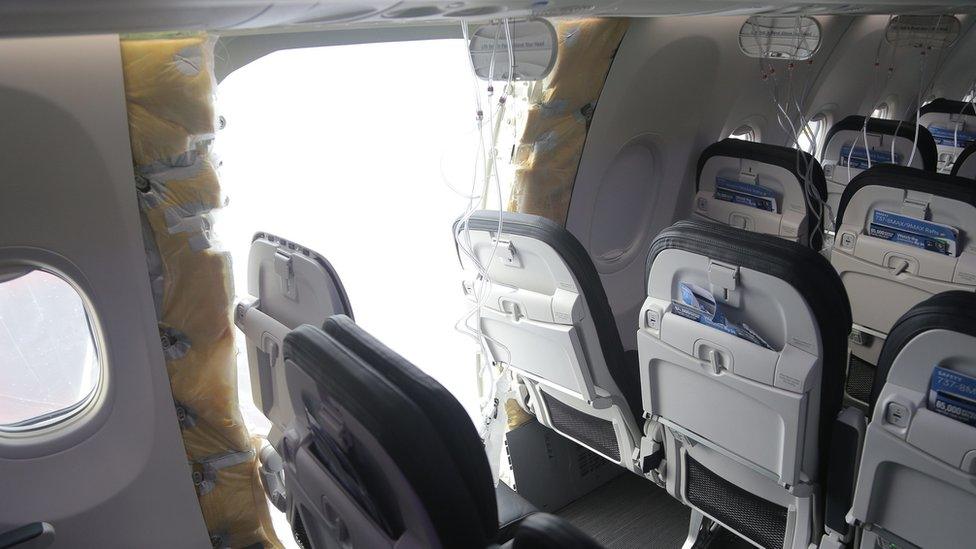
- Published26 February 2024
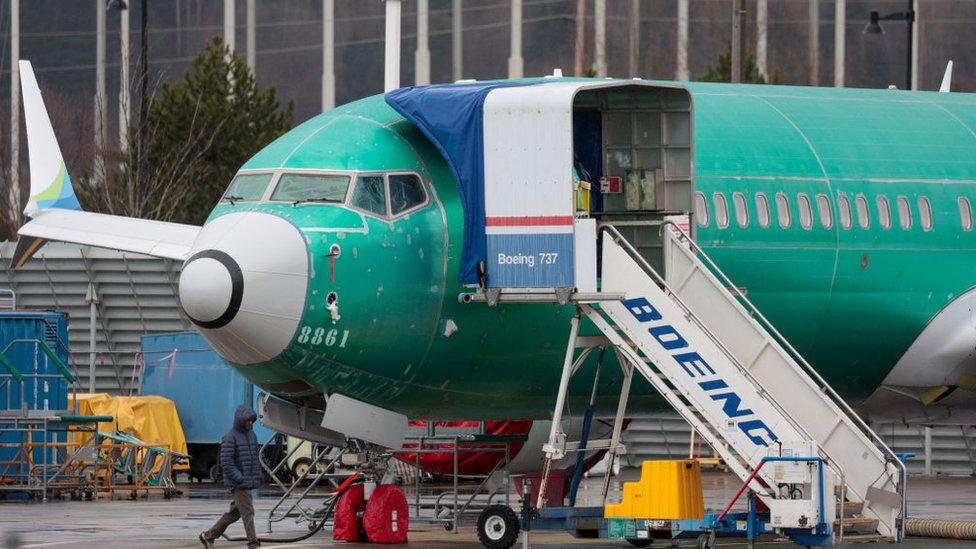
- Published1 March 2024
